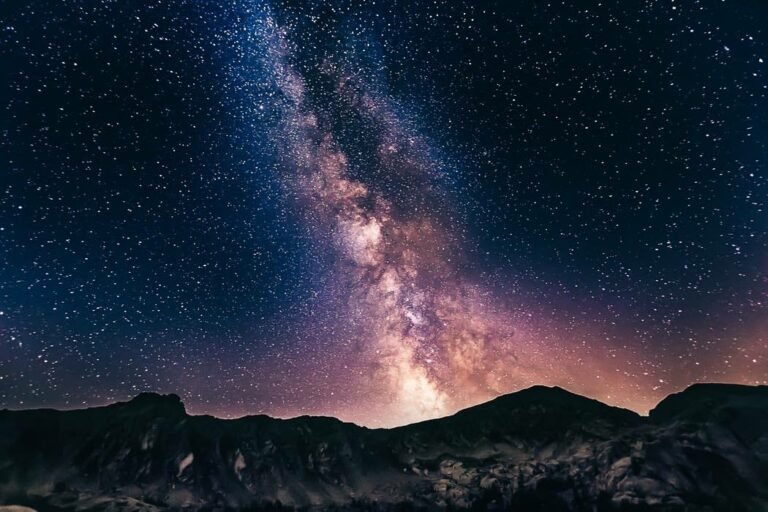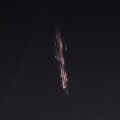My former students and postdocs decided to organize a conference in Martha’s Vineyard next week in celebration of the fact that the Earth has circled the Sun sixty times since I was born. Over the past decades, my research group summarized its scientific insights in nearly a thousand publications. But despite this large volume of documented thoughts, I hereby confess that I remain puzzled about three astronomical aspects of our life.
First, consider material composition. Our body is made of heavy elements which were fused in the cores of massive stars, that exploded to enrich the interstellar medium, out of which the Solar system formed, inside of which the Earth condensed and nourished our temporary existence. Viewed this way, we are merely passengers on a spaceborn cabin called Earth with borrowed luggage, heading to an unknown destination. Despite our fundamental ignorance, we take pride in peripheral knowledge. For example, we recognize that most of the stuff in the universe is of a different nature than the matter we find in our cosmic neighborhood. We label it “dark matter” or “dark energy” and quantify how much of it exists to a second decimal place. But a century of celebrated cosmology without understanding the nature of most of the stuff that makes the universe, is a dismal record of scientific knowledge.
Second, consider time. Our individual lifespan is limited to a period of time that is at least a hundred million times shorter than the age of the Universe. This allows us to experience only a brief snapshot of cosmic history and limits our perspective regarding the big picture. Astronomy would have benefited greatly from billions of years of documented data. For each of us as an individual, time is short and nothing of substance remains. Yet, throughout life, we chase consolation prizes in the form of “likes” on social media, honors and awards.
Third, consider space. Conditions on Earth are likely replicated in nearly sextillion (10 to the power of 21) habitable exo-planets within the observable volume of the Universe. Yet, most of the scientific community regards the claim that other intelligent civilizations existed over the past 13.8 billion years since the Big Bang, as an “extraordinary” claim that can be admitted to the mainstream club of ideas only after extraordinary evidence is found. But such evidence may be subtle, requiring extraordinary effort similar in scale to the search for dark matter.


After all, the Universe is under no obligation to flatter our ego or make these searches easy. In fact, there was a faint knock on our door recently through the seismometer signal recorded on Manus Island in Papua New Guinea in 2014. Instead of asking Fermi’s question “where is everybody?”, we better show courage and approach the front door in search of the answer.
One way to reconcile the vast scale of the cosmos with our limited perspective, is to admit as a starting point that we are not extraordinary. Just check the daily news and realize how much room there is for improvement.
The cosmos cares so little about us that it does not bother to provide us with a manual for our existence. But there is hope that we might find other passengers who had been around longer than we did. With age comes wisdom. For now, it may well be that our cosmic neighbors in the Milky Way galaxy chose to swipe us to the left while monitoring our daily news on their dating app.
Personally, I would be thrilled to read a text message on an advanced gadget from a more intelligent civilization. My life over the past 60 years spanned half of modern science, since our knowledge about relativity and quantum mechanics was acquired about 60 years before I was born. My wish for the remaining decades of my life is that I will have the opportunity to learn from a scientific knowledge base that was acquired over a period of time that is a hundred million times longer. Knowing that someone else in our cosmic neighborhood did better than humanity will ease my mind and allow me to rest in peace.
Avi Loeb is the head of the Galileo Project, founding director of Harvard University’s – Black Hole Initiative, director of the Institute for Theory and Computation at the Harvard-Smithsonian Center for Astrophysics, and the former chair of the astronomy department at Harvard University (2011-2020). He chairs the advisory board for the Breakthrough Starshot project, and is a former member of the President’s Council of Advisors onScience and Technology and a former chair of the Board on Physics and Astronomy of the National Academies. He is the bestselling author of “Extraterrestrial: The First Sign of Intelligent Life Beyond Earth” and a co-author of the textbook “Life in the Cosmos”, both published in 2021.

